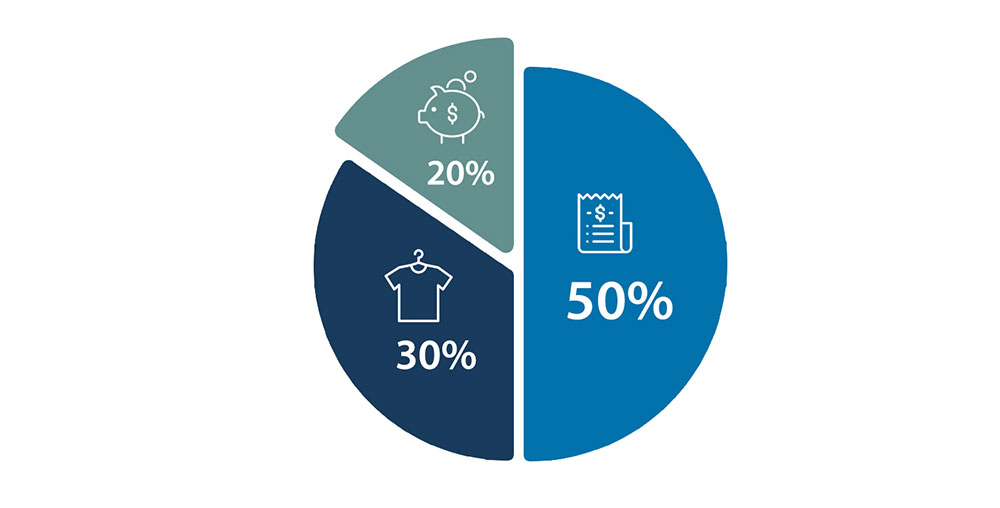
There are several steps that you need to follow when changing financial advisers. These include finding a replacement advisor, transferring assets in kind and planning for tax consequences of switching advisors. You should also make sure that you have a great financial advisor. We will be discussing how to find a qualified advisor and transfer your assets in this article.
Transferring assets "in kind"
The good news is that you don't have to liquidate all of your assets when you switch financial advisors. You can instead transfer your assets "in kind" and avoid any tax consequences. However, you should be sure to check your agreement with your current advisor. Many agreements don't require advance notification or automatic liquidation. But you need to be aware of what can and cannot be transferred.
It's easy to transfer assets in kind. You can transfer your assets online through most brokerages. Make sure that the account type you create is the same as the one you have. For example, if you have 1,000 shares of ABC stock and are moving to another brokerage, you can transfer them in kind. The fee charged by the new brokerage could be either a flat fee or percentage of your assets.

Finding a new financial advisor
There are many reasons why you might be looking for a new financial advisor. One of the most common reasons is a poor performing portfolio. You can fix this problem by working with a firm who uses a proven method for creating customized portfolios that help clients achieve all of their financial goals. The firm's founders have over 30+ years of experience servicing ultra-high-networth clients. As such, they are well-equipped to answer any questions and address your concerns. For a complimentary 15 minute consultation, you can contact them to learn how they can help your financial situation.
Before you hire a new advisor to your financial plan, be sure to verify their credentials. You should ensure that your financial advisor is licensed in all areas pertinent to your plan. This includes investment and insurance. An advisor who holds only one type license may not be able provide the best advice. A CFP designation is also recommended.
Tax consequences of switching financial advisors
Understanding the tax consequences of switching financial advisors is essential. Transferring assets in their entirety can help minimize these tax consequences. This means you can keep your existing advisor and their investments, while your new advisor can decide when to sell them. This will allow you to take any gains or losses slowly without triggering any tax penalties.
Transferring assets from your current advisor to your advisor may take several weeks. You may need to hold certain investments for a period of time. Transferring them can incur transfer fees, which your original advisor must disclose. Cashing out your investments may require fees.

Finding a good financial advisor
Advisors who are familiar with your particular situation may be very valuable. The Internet allows you to search for advisors that meet your needs and compare them. It is important to ask the right questions when choosing a financial planner. You can also contact associations that help set standards for financial advisors. The Certified Financial Planner Board of Standards, National Association of Personal Financial Advisors (Financial Planning Association) are some examples of these associations. BrokerCheck, a website operated by the Financial Industry Regulatory Authority can be used to get more information about advisors.
Before you select a financial consultant, think about the areas that you need to be assisted. A financial advisor should be able address your needs and help you to chart a route. Advisors should be able guide you through the process of retirement planning, debt repayment and protecting your family as well as planning your estate.
FAQ
How old should I start wealth management?
The best time to start Wealth Management is when you are young enough to enjoy the fruits of your labor but not too young to have lost touch with reality.
You will make more money if you start investing sooner than you think.
If you are thinking of having children, it may be a good idea to start early.
You could find yourself living off savings for your whole life if it is too late in life.
How to manage your wealth.
The first step toward financial freedom is to take control of your money. Understanding how much you have and what it costs is key to financial freedom.
It is also important to determine if you are adequately saving for retirement, paying off your debts, or building an emergency fund.
If you do not follow this advice, you might end up spending all your savings for unplanned expenses such unexpected medical bills and car repair costs.
What are the best strategies to build wealth?
Your most important task is to create an environment in which you can succeed. You don't need to look for the money. If you're not careful, you'll spend all your time looking for ways to make money instead of creating wealth.
Additionally, it is important not to get into debt. Although it is tempting to borrow money you should repay what you owe as soon possible.
You can't afford to live on less than you earn, so you are heading for failure. Failure will mean that you won't have enough money to save for retirement.
You must make sure you have enough money to survive before you start saving money.
Where to start your search for a wealth management service
You should look for a service that can manage wealth.
-
Proven track record
-
Is based locally
-
Consultations are free
-
Supports you on an ongoing basis
-
Clear fee structure
-
Good reputation
-
It is easy to contact
-
You can contact us 24/7
-
Offers a variety products
-
Low fees
-
No hidden fees
-
Doesn't require large upfront deposits
-
Have a plan for your finances
-
You have a transparent approach when managing your money
-
Makes it easy to ask questions
-
You have a deep understanding of your current situation
-
Understands your goals and objectives
-
Is available to work with your regularly
-
Work within your budget
-
Has a good understanding of the local market
-
Is willing to provide advice on how to make changes to your portfolio
-
Is available to assist you in setting realistic expectations
What Are Some Of The Different Types Of Investments That Can Be Used To Build Wealth?
You have many options for building wealth. Here are some examples:
-
Stocks & Bonds
-
Mutual Funds
-
Real Estate
-
Gold
-
Other Assets
Each of these has its advantages and disadvantages. Stocks and bonds are easier to manage and understand. However, stocks and bonds can fluctuate in value and require active management. However, real estate tends be more stable than mutual funds and gold.
It's all about finding the right thing for you. You need to understand your risk tolerance, income requirements, and investment goals in order to choose the best investment.
Once you have determined the type of asset you would prefer to invest, you can start talking to a wealth manager and financial planner about selecting the best one.
Is it worth using a wealth manager?
A wealth management service will help you make smarter decisions about where to invest your money. It should also advise what types of investments are best for you. This will give you all the information that you need to make an educated decision.
There are many things to take into consideration before you hire a wealth manager. Consider whether you can trust the person or company that is offering this service. Will they be able to act quickly when things go wrong? Can they easily explain their actions in plain English
What are the Benefits of a Financial Advisor?
A financial plan will give you a roadmap to follow. You won't have to guess what's coming next.
It provides peace of mind by knowing that there is a plan in case something unexpected happens.
You can also manage your debt more effectively by creating a financial plan. You will be able to understand your debts and determine how much you can afford.
Your financial plan will protect your assets and prevent them from being taken.
Statistics
- US resident who opens a new IBKR Pro individual or joint account receives a 0.25% rate reduction on margin loans. (nerdwallet.com)
- A recent survey of financial advisors finds the median advisory fee (up to $1 million AUM) is just around 1%.1 (investopedia.com)
- According to a 2017 study, the average rate of return for real estate over a roughly 150-year period was around eight percent. (fortunebuilders.com)
- If you are working with a private firm owned by an advisor, any advisory fees (generally around 1%) would go to the advisor. (nerdwallet.com)
External Links
How To
How to beat inflation with investments
Inflation is one important factor that affects your financial security. Inflation has been steadily rising over the last few decades. Each country's inflation rate is different. India, for example, is experiencing a higher rate of inflation than China. This means that although you may have saved some money, it might not be enough for your future needs. If you don't make regular investments, you could miss out on earning more income. How can you manage inflation?
Stocks can be a way to beat inflation. Stocks provide a good return-on-investment (ROI). You can also use these funds to buy gold, silver, real estate, or any other asset that promises a better ROI. There are some things to consider before you decide to invest in stocks.
First of all, you need to decide what type of stock market it is that you want. Do you prefer large-cap companies or small-cap ones? Choose accordingly. Next, learn about the nature of the stock markets you are interested in. Is it growth stocks, or value stocks that you are interested in? Choose accordingly. Finally, understand the risks associated with the type of stock market you choose. There are many stocks on the stock market today. Some stocks can be risky and others more secure. You should choose wisely.
Take advice from experts if your goal is to invest in stock markets. Experts will help you decide if you're making the right decision. You should diversify your portfolio if you intend to invest in the stock market. Diversifying can increase your chances for making a good profit. If you only invest in one company, then you run the risk of losing everything.
A financial advisor can be consulted if you still require assistance. These experts will help you navigate the process of investing. They will guide you in choosing the right stock to invest. Furthermore, they will also advise you on when to exit the stock market, depending on your goals and objectives.